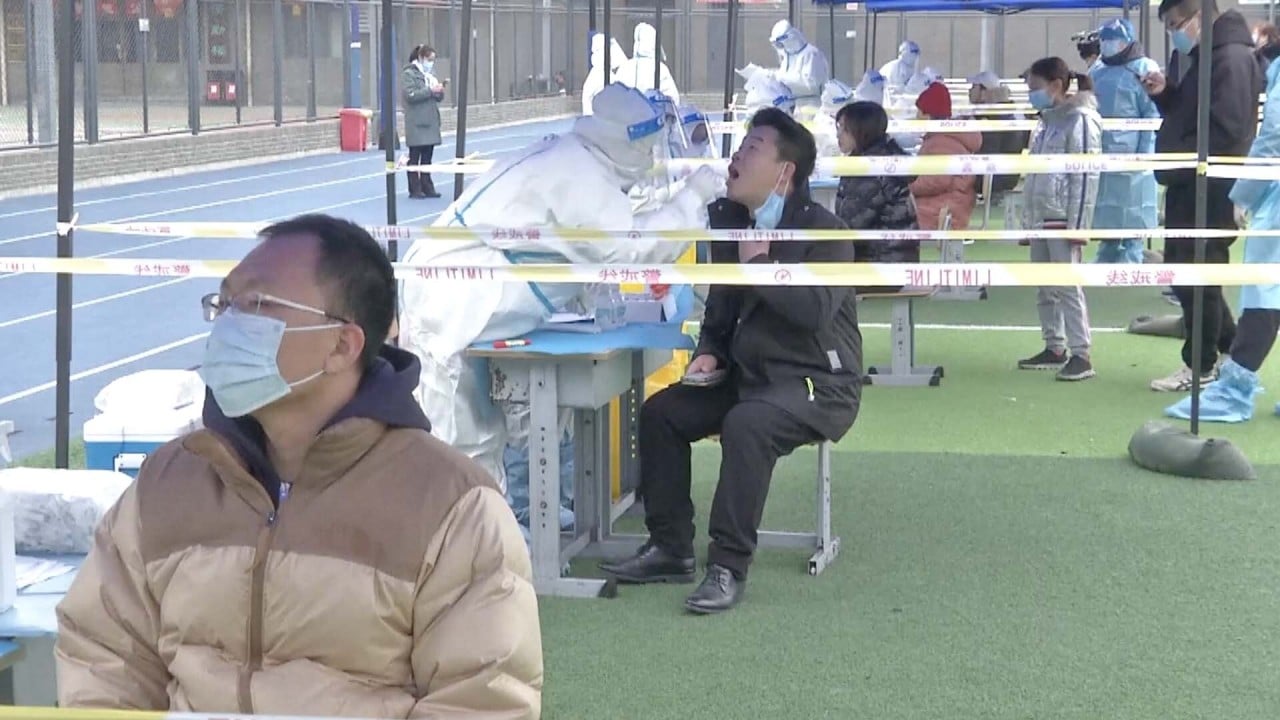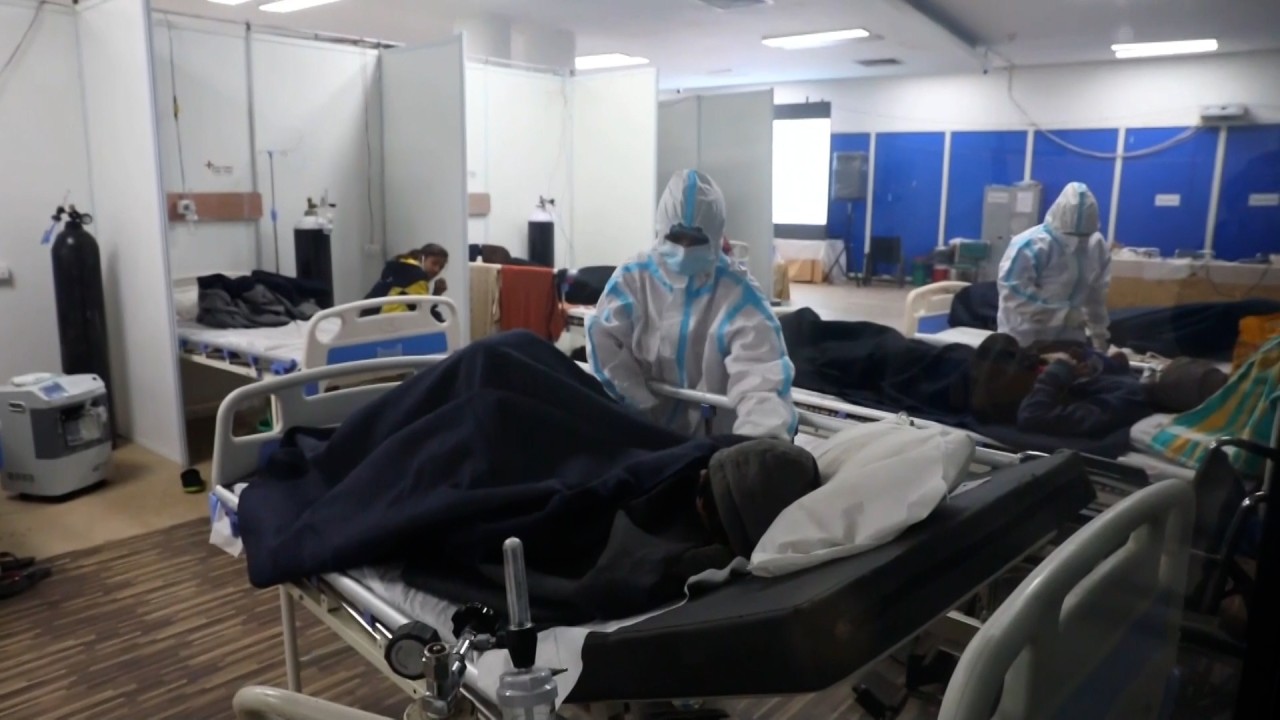
Coronavirus: US troops in Japan must stay on base; Australia tops 1 million infections
- Japan warns US to enforce stricter anti-pandemic rules for troops, saying recent Covid-19 clusters came from infected American service personnel
- Elsewhere, India rolls out booster shots as cases soar; Karachi reports alarming rise in Covid-19 cases; 85-year-old gets 12 vaccine doses, wants more
US troops in Japan have stopped making non-essential visits off-base for two weeks from Monday, as local officials in areas hosting the forces link them with a sharp rise in coronavirus infections.
The announcement came as the government imposed new virus restrictions in three regions, including Okinawa, that host major US bases or are near them. Many Japanese officials believe the recent Covid-19 clusters originated from infected American service members coming into contact with local residents.
On Friday, Japan’s foreign and defence ministers had warned their US counterparts to implement stricter anti-pandemic rules for US troops.
“Movement of USFJ (US Forces, Japan) personnel outside (US military-related) facilities and areas will be restricted to essential activities only,” read a joint statement from the Japanese government and the USFJ issued late Sunday.
Coronavirus: US forces in Japan confined to bases to stem spread
Service members will also have to wear masks when they are outside their homes, it added. In mid-December, the US military reported clusters of cases among its members in a southern region of Okinawa, which subsequently saw a sharp rise of cases in the local community.
Japan has imposed strict border control measures, such as quarantine and frequent testing, on those who enter the country from abroad.
But the same rules have not applied to US service members, with Foreign Minister Yoshimasa Hayashi saying that until recently incoming troops were not even tested for the virus on arrival, or required to quarantine.
Hayashi had had repeated online meetings with US Secretary of State Antony Blinken in recent days, urging Washington to restrict US forces’ movement. Okinawan officials say the US military reported 998 infections on-base between December 15 and January 5. The island region hosts the bulk of some 54,000 US troops in Japan.
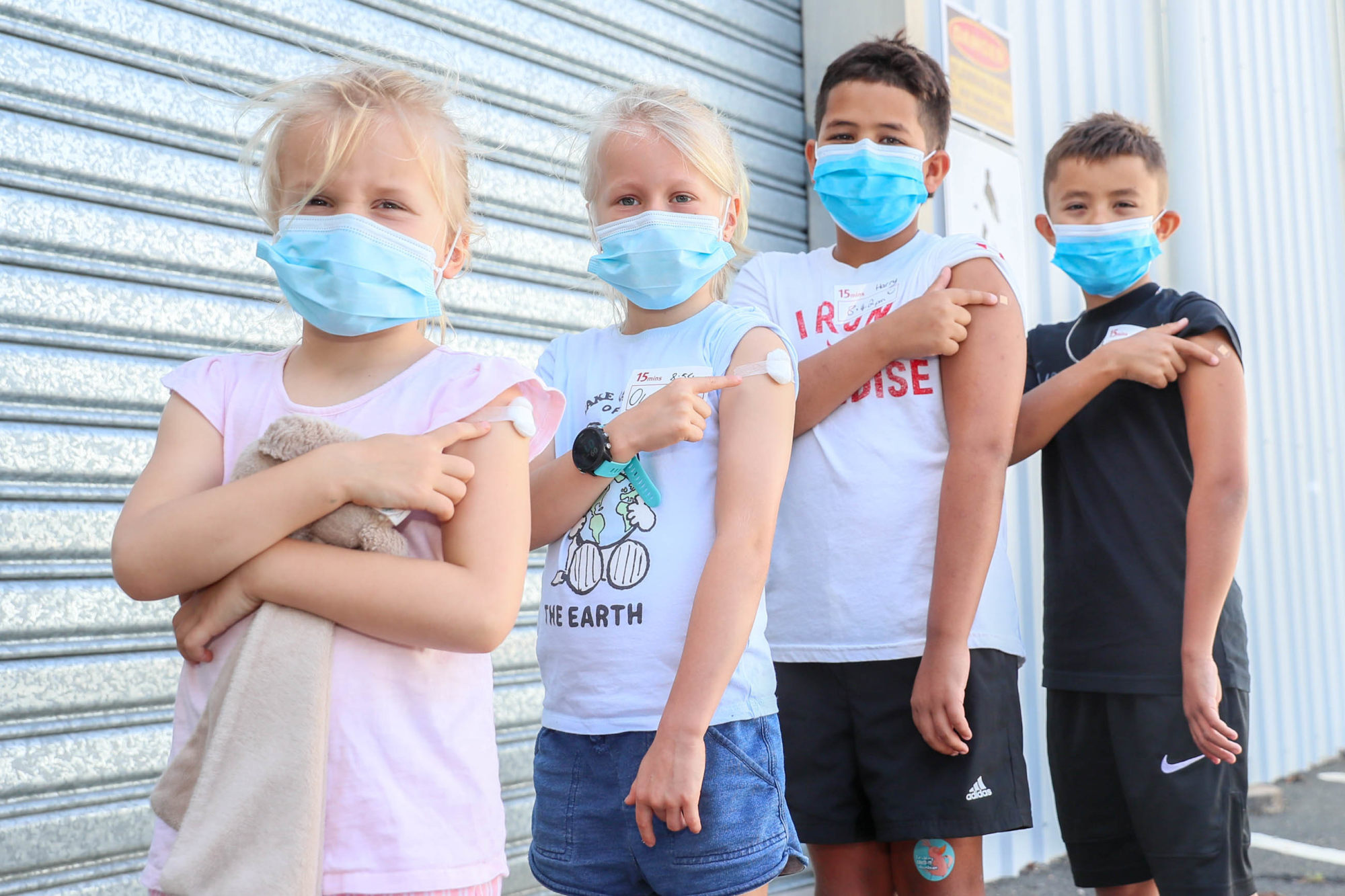
Australia tops 1 million infections
Australia must “push through” the fast-moving Omicron outbreak, Prime Minister Scott Morrison said on Monday, as infections surpassed 1 million, more than half in the past week alone, throwing a strain on hospitals and supply chains.
Although aggressive lockdowns and tough border controls kept a lid on infections earlier in the pandemic, Australia is now battling record infections in its effort to live with the virus after higher vaccination rates.
Growing hospital admissions have forced officials to restore curbs in some states, as businesses grapple with shortages of staff because of sickness or isolation requirements.
Morrison, facing pressure at the start of an election year, plans changes to isolation rules to allow work in food production and distribution by those who have been in close contact with asymptomatic infections.
Scientist defends discovery of new ‘Deltacron’ Covid-19 variant
“Omicron is a gear change and we have to push through,” the prime minister told a media briefing in the capital, Canberra. “You’ve got two choices here: you can push through or you can lock down. We are for pushing through.”
Morrison, who will submit his proposals to state leaders at a meeting of the national cabinet this week, plans to eventually widen the changes to transport and other key sectors.
Even though Australia was dealing with serious volumes of cases, health systems were coping, Morrison added. More than 3,500 people are in hospital, up from about 2,000 a week ago.
Data showed Australia’s infections crossed 1 million on Monday, with more than half in the last week alone. Supply issues could persist for another three weeks, said supermarket chain Woolworths, where one in five employees is in quarantine.
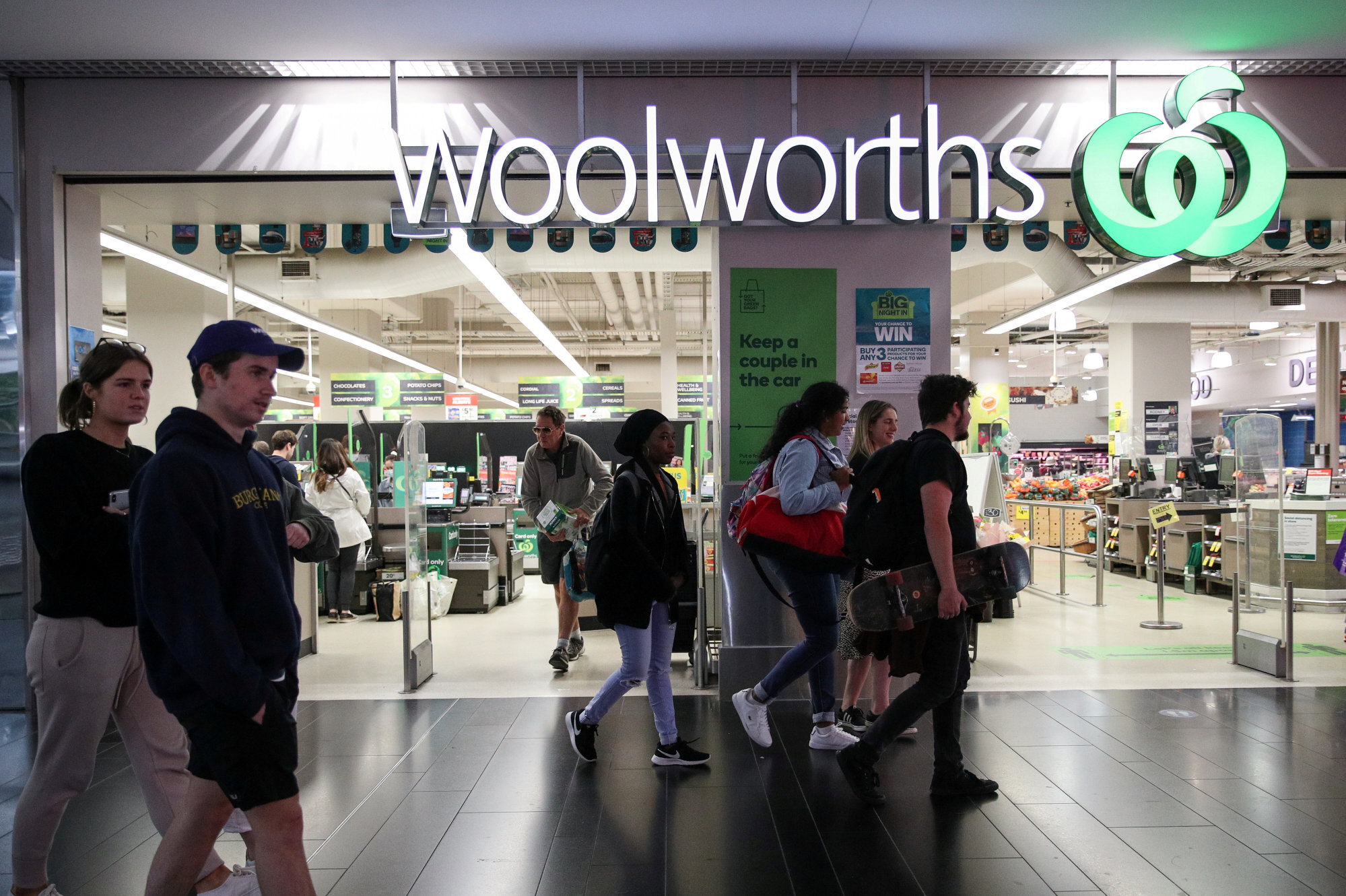
“At this stage, there is enough product in our supply chain to meet the needs of customers,” Chief Executive Brad Banducci told ABC Radio. “It might not always be their favourite brand, unfortunately.”
Health officials warned Monday’s figure of just over 67,000 infections could be an “underestimate”, as reports from some states do not include those who tested positive in at-home rapid antigen tests. Sunday’s tally was just under 100,000.
Total Covid-19 infections in Australia touched 1.04 million since its first case nearly two years ago. The death toll stands at 2,387, though the Omicron wave has caused fewer deaths than previous outbreaks, with 92 per cent of those over 16 having received two vaccine doses.
As its booster programme gathers pace, Australia began rolling out from Monday inoculations with Pfizer’s vaccines for children aged five to 11.
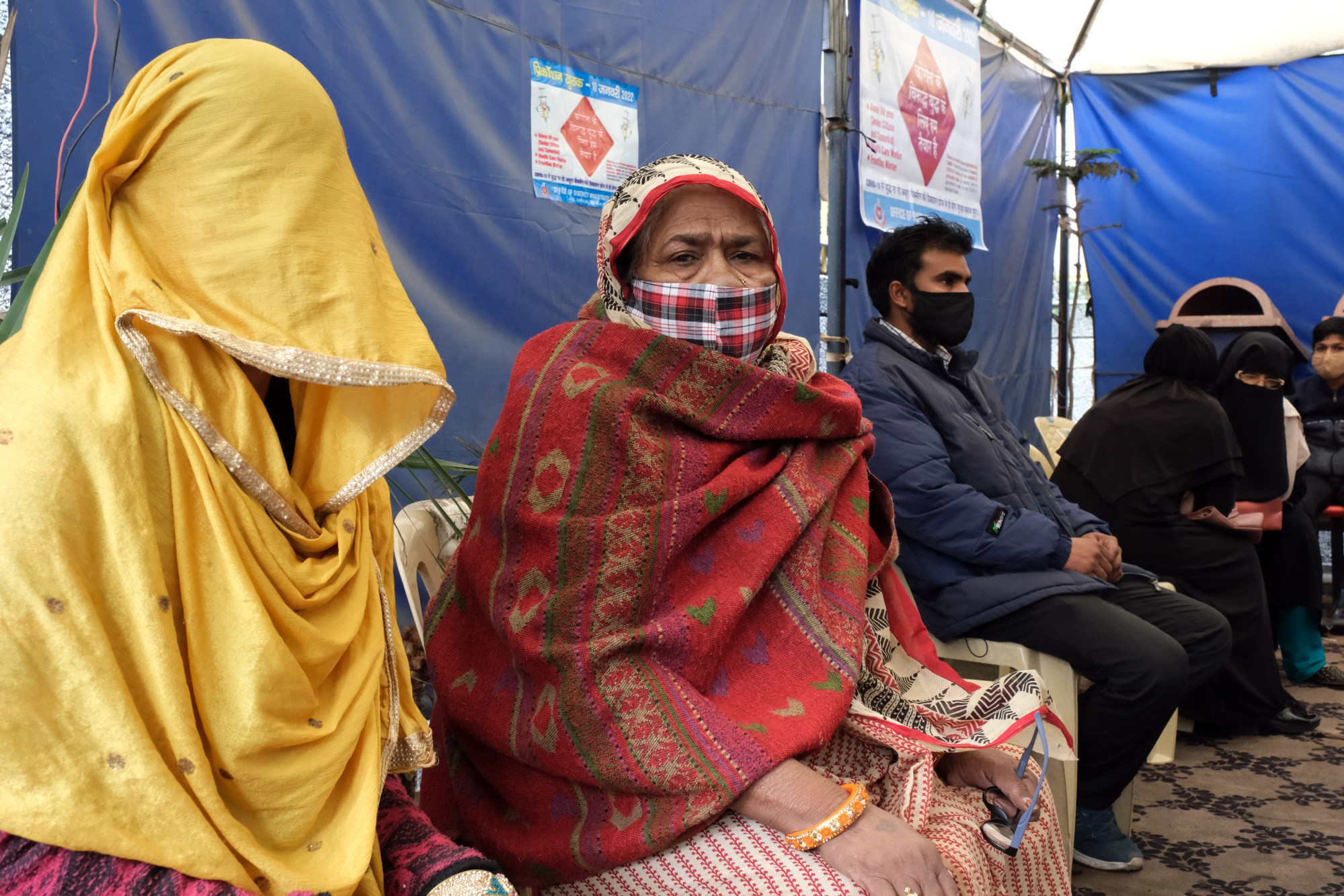
India rolls out booster shots as cases soar
India reported 179,723 new cases on Monday, most of them in the country’s biggest cities – Delhi, Mumbai and Kolkata – where Omicron has overtaken Delta as the most prevalent strain of the virus.
There were 146 deaths reported on Monday, bringing the toll to 483,936 since the pandemic first struck India in early 2020. Only the United States and Brazil have recorded more deaths.
In recent days, hundreds of health care and frontline workers, including police, have contracted the virus, and there were media reports that hundreds of parliamentary staff have also tested positive ahead of a budget session on February 1.
Hong Kong to provide 150 more quarantine hotel rooms for arriving helpers
Facing this rising third wave of infections, the government sent booster reminders to more than 10 million people who took their second dose of the Covaxin or Covishield shot nine months ago. Unlike many countries, India is not mixing and matching vaccines.
Only health care personnel, frontline workers and people above 60 years suffering from other health conditions are eligible for what the government calls a “precaution dose”.
“The government is committed to provide additional security cover to health care and frontline workers on priority,” Health Minister Mansukh Mandaviya wrote on Twitter.
Despite the rise in infections, five states including the most populous Uttar Pradesh will hold elections starting February 10, though authorities have barred political party rallies until at least the middle of this month.
Tasked with protecting India’s near 1.4 billion people from the virus, the government has administered 1.5 billion vaccine doses in total. About 67 per cent of the country’s 939 million adults have been double vaccinated.
India’s overall Covid-19 testing has remained around 1.5 million a day, well below the capacity of more than 2 million. Since the pandemic began, India has recorded 35.7 million cases of Covid-19, the highest in the world after the United States.
Government officials have privately said they are working under the assumption that daily infections will surpass the record of more than 414,000 set in May, based on what has happened in countries like the United States, where daily cases have risen past 1 million.
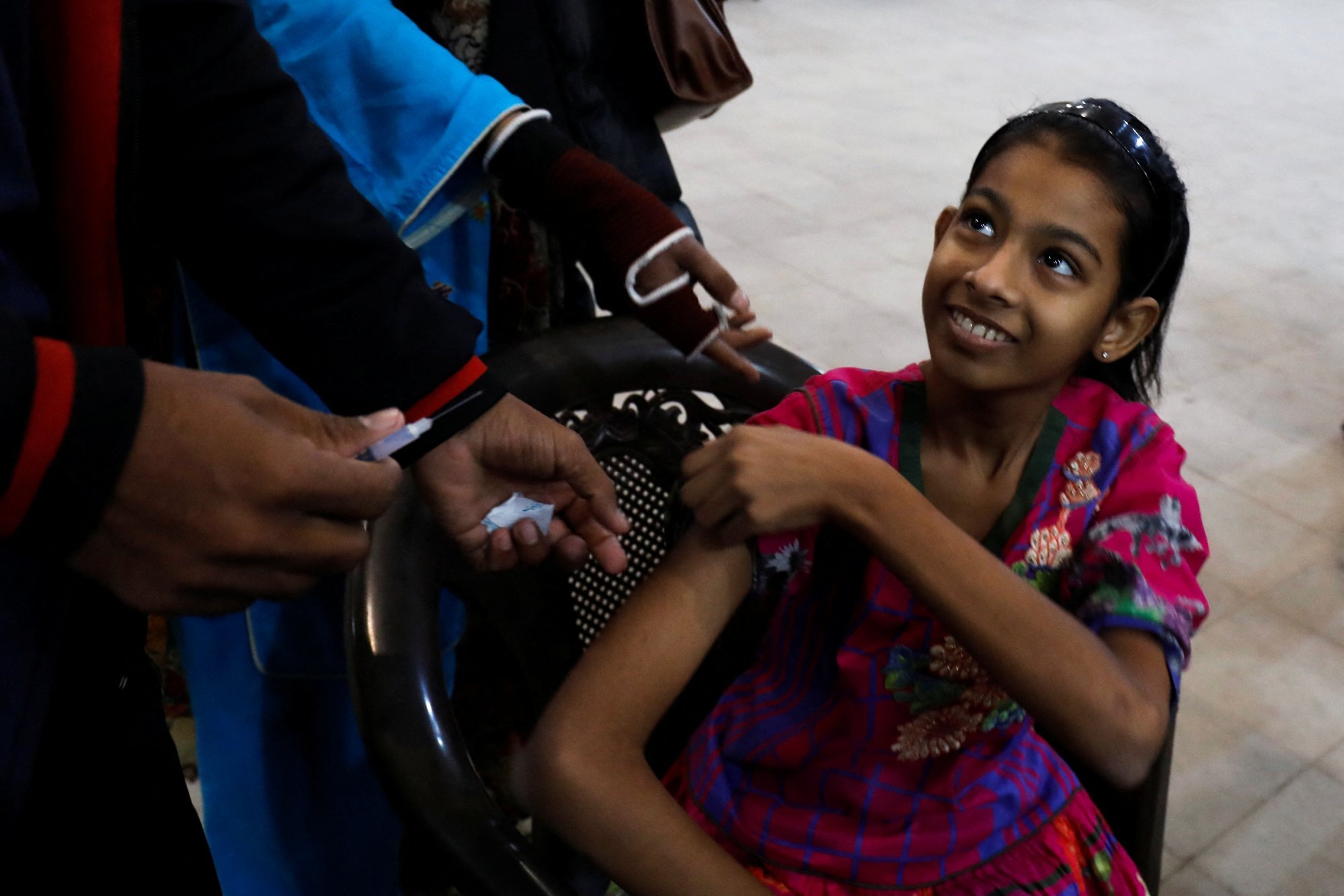
Pakistan’s biggest city reports alarming rise in Covid-19 cases
Karachi, a metropolis of 20 million that is Pakistan’s largest city, faces an alarming surge in new coronavirus infections, as an outbreak of Omicron hits the South Asian country.
The positivity ratio of those tested for Covid-19 was recorded at 15.9 per cent in the port city of Karachi, officials said on Monday. The national positivity ratio was recorded at a three-month high of 3.66 per cent, with 1,649 new cases and three related deaths reported in the last 24 hours, according to the Health Ministry
The country has recorded 1,305,707 cases and 28,972 Covid-related deaths in total during the course of the pandemic.
“The surge of new cases is alarming”, Qaiser Sajjad, the secretary general for the Pakistan Medical Association, told dpa on Monday.
‘Like a bomb has hit us’: Omicron punctures hope for Thai businesses
He said a large number of people do not get tested for Covid and were getting treatment at their homes. Sajjad said that Omicron was dominating new infections and hospitalisation could go up in the coming weeks.
“We are still receiving cases of Delta variant and there are fears of a new strain that combines it with Omicron,” he said.
Pakistan has administered more than 162 million vaccine doses, with more than 73 million fully vaccinated, since its immunisation drive began in February 2021. Last week, authorities warned against a fifth wave of the pandemic starting in the country as a surge in new Covid-19 cases ended the downward trend in infections.
Pakistan reported its first case of Omicron on December 13.
Indian man gets 12 vaccine doses, wants more
Brahmdeo Mandal, a retired postman from the Indian state of Bihar, says he received nine of the shots he registered for using a national identity card. To receive additional jabs, he used identification such as his wife’s phone number and a voting card.
“I felt that it was helping my general health,” he told the newspaper. “My backache has improved, my general weakness improved, and my appetite improved. I was always looking for new vaccine camps and would go there,” he added. “Nobody would recognise me.”
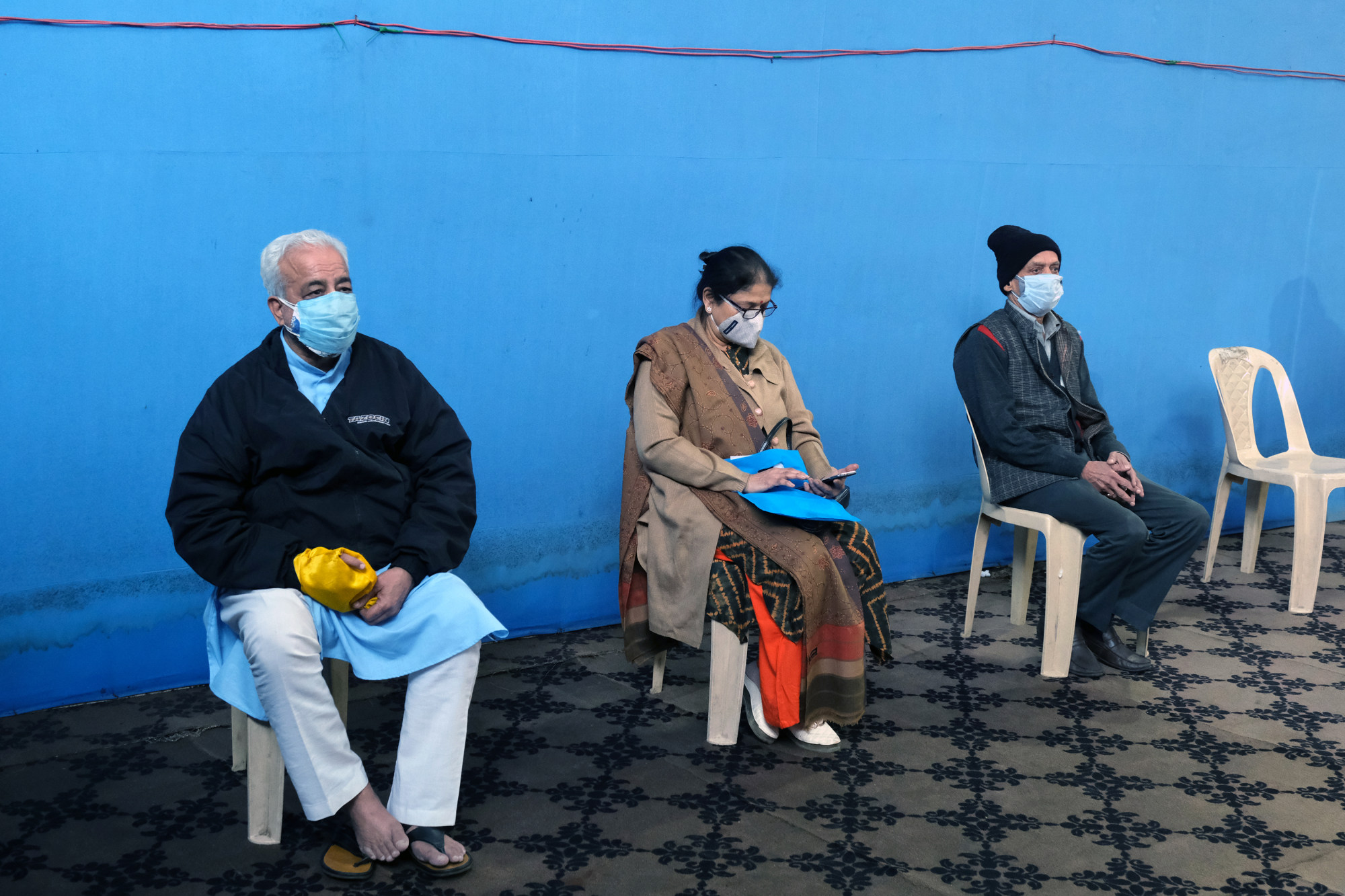
Mandal also noted that he has not been convinced that he should stop receiving Covid-19 vaccines, telling the Times “I still want more.”
There is no evidence that additional Covid-19 vaccines provide benefits for health conditions unrelated to protection against the virus that causes Covid-19.
Dr Amarendra Narayan Shahi, the chief medical officer in the Madhepura district in Bihar, told the Times that he has spoken to the man about his vaccine doses. Shahi said internet problems have delayed uploading vaccination information in Madhepura.
The health official has launched a team to investigate Mandal’s claim, and other area authorities are also investigating. Officials have confirmed Mandal received eight vaccines from four sites. In one instance, Mandal received two shots within 30 minutes, the BBC reported.



.png?itok=arIb17P0)
